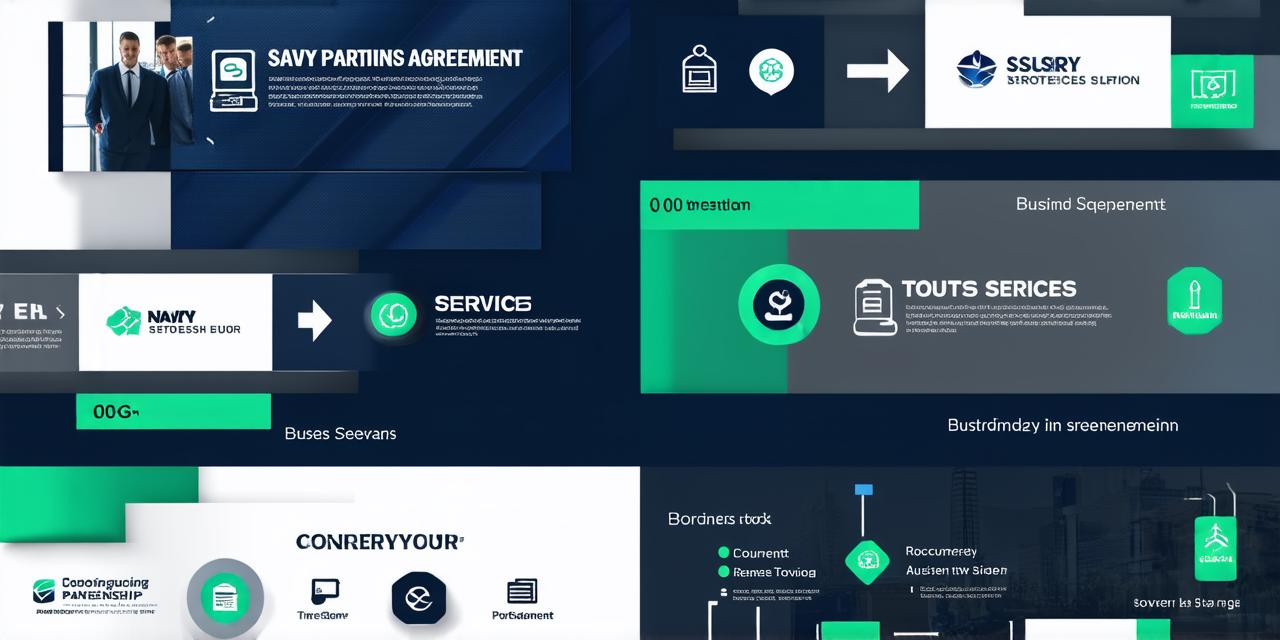Introduction:
Outsourcing is a popular business practice that involves outsourcing tasks and processes to third-party providers. When engaging in outsourcing services, it’s essential to have a clear agreement in place to protect your interests and ensure the success of the project.
The Importance of Outsourcing Services Agreement:
An outsourcing services agreement is a critical document that outlines the terms and conditions of the relationship between your business and the third-party provider. The agreement should cover aspects such as scope of work, timelines, deliverables, payment terms, intellectual property rights, confidentiality, and termination provisions. Without a clear agreement in place, you risk misunderstandings, disputes, and even legal issues down the line.
Key Components of an Outsourcing Services Agreement:
1. Scope of Work:
The scope of work should clearly define the tasks and processes that the third-party provider will be responsible for, including deliverables, deadlines, and performance expectations. It’s important to have a detailed and specific description of the work to avoid any misunderstandings or miscommunications. The scope of work should also include any exceptions or limitations on the work that the provider can do.
2. Payment Terms:
Payment terms should specify how the payment for the outsourcing services will be made, including the amount, timelines, and payment methods. It’s essential to have clear payment terms in place to avoid any financial disputes down the line. The payment terms should also include any penalties or consequences for late payments.
3. Intellectual Property Rights:
Intellectual property rights should define who owns the intellectual property created during the outsourcing project. This includes ownership of data, patents, trademarks, and other proprietary information. It’s important to have clear intellectual property rights in place to protect your interests and avoid any legal disputes. You should also specify how the third-party provider will handle and protect the intellectual property created during the project.
4. Confidentiality:
Confidentiality provisions should outline how the third-party provider will handle and protect confidential information provided by your business. This includes non-disclosure agreements, data security measures, and access controls. It’s important to have clear confidentiality provisions in place to protect sensitive information and avoid any legal issues down the line. You should also specify who is responsible for ensuring that the confidential information is kept secure.

5. Termination Provisions:
Termination provisions should outline the circumstances under which the outsourcing services agreement can be terminated, including notice periods, reasons for termination, and any penalties or consequences. It’s important to have clear termination provisions in place to protect your interests and avoid any legal issues down the line. You should also specify who is responsible for terminating the agreement if necessary.
Case Study: The Benefits of a Well-Crafted Outsourcing Services Agreement
ABC Corporation outsourced its IT department to XYZ Solutions, a third-party provider. ABC Corporation had a well-crafted outsourcing services agreement in place that covered all the key components discussed above. The agreement helped prevent any misunderstandings or disputes between ABC Corporation and XYZ Solutions.
As a result of the agreement, ABC Corporation was able to focus on its core business operations while XYZ Solutions took care of the IT department. The agreement also ensured that ABC Corporation retained ownership of the intellectual property created during the project. In addition, the confidentiality provisions helped protect sensitive information provided by ABC Corporation.
If an outsourcing services agreement had not been in place or if it was not well-crafted, there could have been significant consequences for ABC Corporation. These consequences could include financial disputes, legal issues, and damage to the business’s reputation.
FAQs:
Q: What is the purpose of an outsourcing services agreement?
A: The purpose of an outsourcing services agreement is to outline the terms and conditions of the relationship between your business and the third-party provider. The agreement should cover aspects such as scope of work, timelines, deliverables, payment terms, intellectual property rights, confidentiality, and termination provisions.
Q: What are the key components of an outsourcing services agreement?
A: The key components of an outsourcing services agreement include scope of work, payment terms, intellectual property rights, confidentiality, and termination provisions. These components should be included in the agreement to avoid any misunderstandings, disputes, or legal issues down the line.
Q: What are some benefits of having a well-crafted outsourcing services agreement?
A: Some benefits of having a well-crafted outsourcing services agreement include preventing misunderstandings and disputes, ensuring that your interests are protected, and avoiding any legal issues or damage to your business’s reputation.
Summary:
Creating a template for outsourcing services agreement is crucial when engaging in outsourcing services to protect your interests and ensure the success of the project. The key components discussed above should be included in the agreement to avoid any misunderstandings, disputes, or legal issues down the line. By following these guidelines and using real-life examples, you can create an effective outsourcing services agreement that will benefit your business in the long run.
